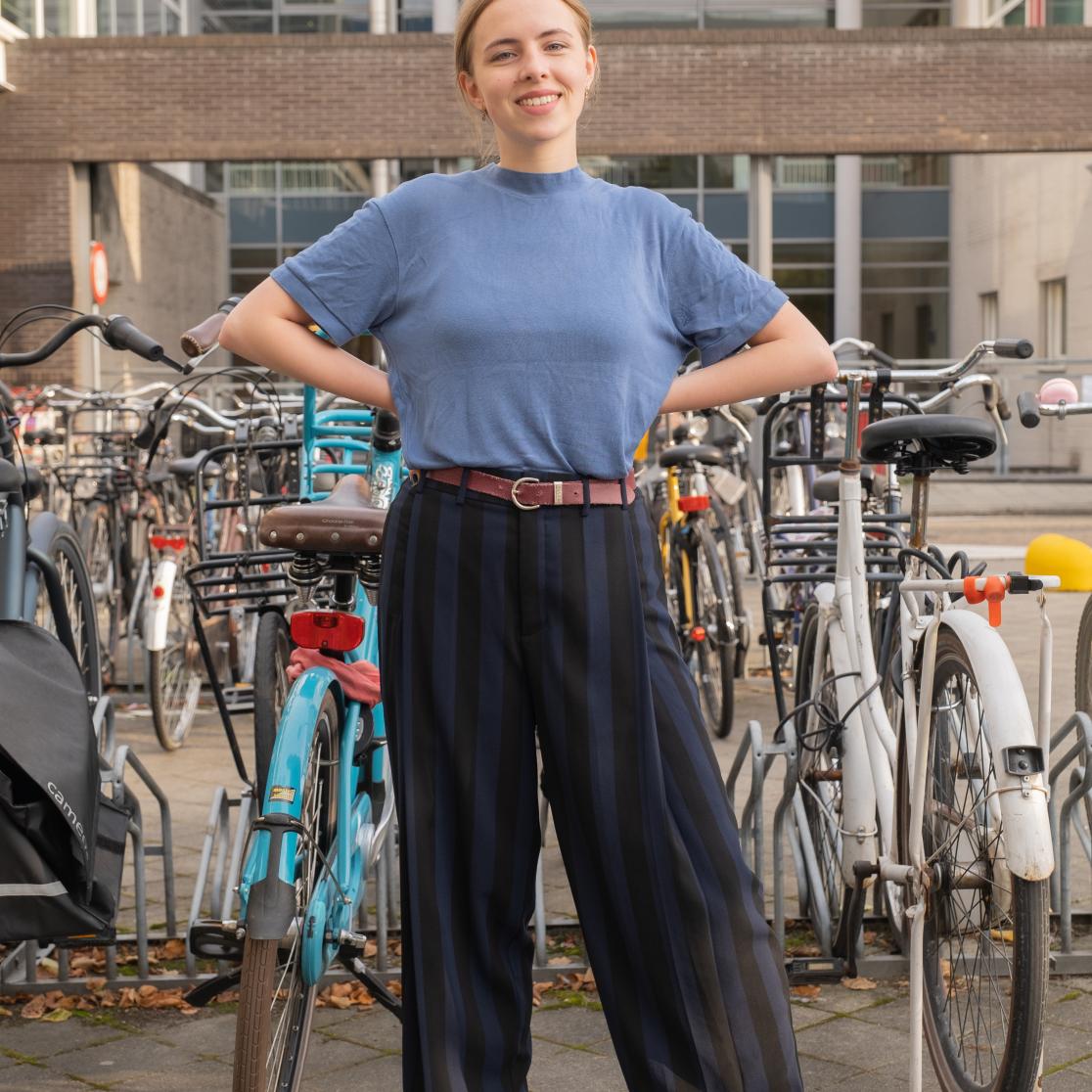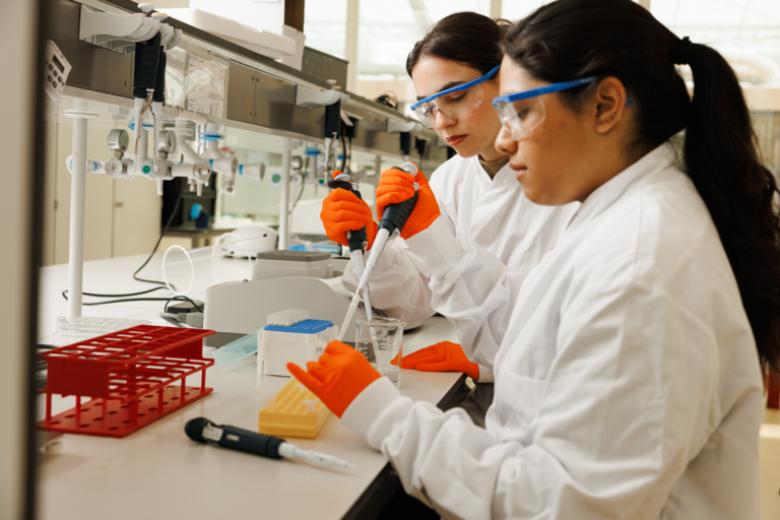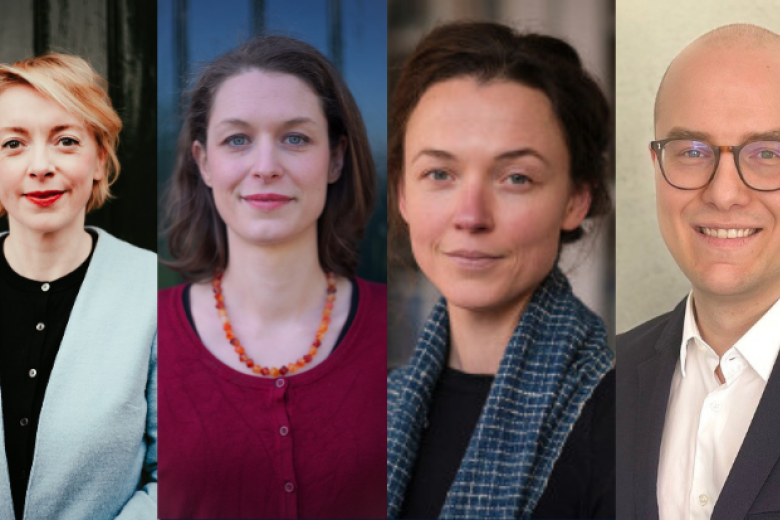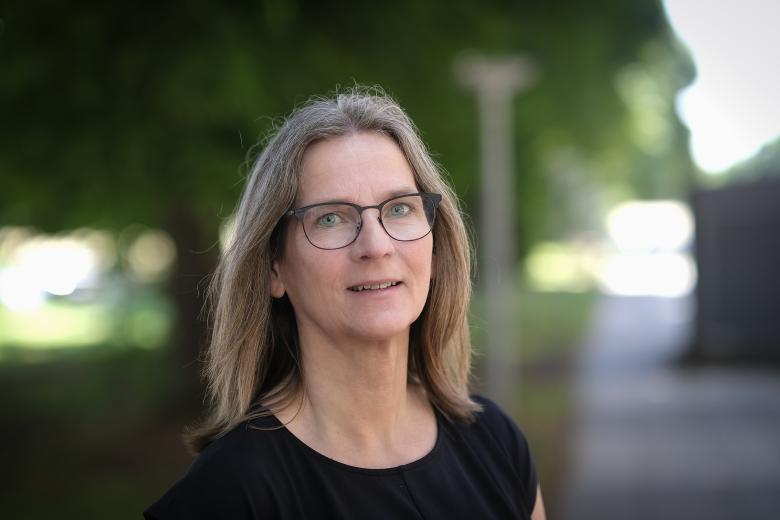Sofie, researcher Erasmus University Rotterdam
Sofie Schuller, 2022 alumna of the master’s programme Occupational Health and Sustainable Work (previously known as Work, Health and Career) is currently conducting research on the working conditions of ‘ghost workers’. As a former student-ambassador, Sofie still feels very connected with the programme.
Sofie entered the master’s programme with a bachelor degree in psychology and a specialisation in stress research. Sofie: “I was looking for a programme that could really help me find a job. I reached out to Inge Houkes, the programme coordinator of Work, Health and Career and we had several open and honest conversations about the career possibilities with my combination of degrees. That’s what convinced me of my choice to enter the programme.”
She quickly found out that Occupational Health and Sustainable Work is a hands-on programme with a small student community. “At some point in the programme, we were forced to step out of our comfort zone and look for organisations such as bakeries, shops or hospitals to inspect the workplace and write a report that the organisation could actually use. Unlike my other studies, which were mostly theoretical, I felt like a student-consultant getting to practice what I was taught.”
The teaching staff tries to include all types of workers in the content of the programme, from construction workers to teachers. However, research on workers in non-standard employment is lacking. This deficit sparked Sofie’s career choice.
Currently, Sofie works as a researcher at the Erasmus University Rotterdam. She has her own project about the working conditions of so called ‘ghost workers’. On-demand workers who, via digital platforms, conduct tasks such as data cleaning, coding, and classifying content. “Many things that we interact with on a daily basis, such as voice control, would not function without these groups of workers. But nobody really knows about them, let alone care for their health and wellbeing.” Sofie is now conducting research that has to provide the European Research Council with useful insights about their working conditions. As the EU seeks to regulate this labor market, Sofie’s input will be used to create new policy that suits the worker’s needs. “Interestingly enough, not all ghost workers want a standardized model of employment. This makes us think about a more free type of employment, where a ghost worker is still protected and cared for”.
Sofie has some advice for students that are considering Occupational Health and Sustainable Work. “A lot of bachelor students are looking for the perfect fit for a master’s programme. If you are interested in this master, I suggest to just bring your study background and own perspective to the programme. Both students and staff value it. And know that whatever degree you combine the programme with, there are people looking for your combination of expertise.”
In regards to studying at Maastricht, Sofie still has fond memories. “UM is an incredibly welcoming environment for international students, I never felt alone and got to connect with fellow Dutch students.”

Also read
-
Two new academic programmes launch in Venlo
Two programmes, one at Maastricht University and one jointly offered by the universities of Maastricht and Nijmegen, have been given the green light. Both tech and science-based programmes focus on a sustainable world and are part of the Faculty of Science and Engineering. The programmes will start...

-
Four FASoS researchers awarded prestigious NWO Veni grants
We are proud to announce that Simone Schleper, Flora Lysen, Laura Ogden, and Mirko Heinzel, have each been awarded a Veni grant by the Dutch Research Council (NWO).

-
Assessment is beautiful
While the Dutch word for assessment (toetsen) often carries a negative connotation, Desirée Joosten-ten Brinke sees it as something quite beautiful.
